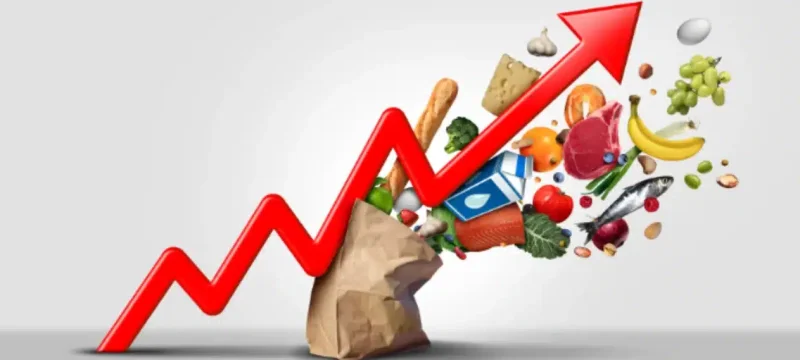The Finance Division’s recent report highlights that elevated prices of perishables and vegetables, along with increased energy tariffs, are contributing to inflationary pressure in Pakistan. This economic strain is making it difficult for people to meet their daily nutritional needs amid a cost of living crisis.
The report indirectly acknowledges the government’s failure to make timely decisions and regulate affairs according to the people’s needs, citing the boost in food exports as a major factor behind the rising prices. The ban on Indian onion exports has led to a surge in export orders, straining local supply and causing domestic prices to rise.
Also Read: Weekly Inflation Surges Over 44% Amid Soaring Gas and Food Costs
The Monthly Economic Update and Outlook for January 2024 attribute specific commodity price hikes to supply disruptions caused by severe weather. For instance, tomatoes have witnessed price increases due to supply disruptions, and chicken prices have risen due to reduced supply, particularly from controlled sheds experiencing higher input costs.
While the government’s decision to reduce onion exports and lift the ban on soybean imports is expected to bring a “slight moderation” in the inflation outlook by improving the supply situation of perishables and chicken, the report fails to address the impact of meat exports on rising chicken, mutton, and beef prices.
Despite challenges such as supply chain disruptions and increased utility prices, the Finance Division suggests that the decline in fuel costs could counterbalance the overall impact on consumers and production sectors. However, this assertion may be reconsidered, especially after the recent government decision to hike petrol and high-speed diesel prices.
According to the Finance Division, inflation is expected to remain around 27.5-28.5 percent in January, with a slight easing to 26.5-27.5 percent in February 2024. The consumer price index (CPI) recorded a year-on-year basis of 29.7 percent in December 2023, compared to 24.5 percent in the corresponding month of 2022.
Additionally, the report notes that wheat cultivation has exceeded the target by 1.8 percent in the Rabi season of 2023-24, aiming for a production of 32.12 million tonnes. This increase is attributed to favourable climatic conditions and effective government interventions, including improved seed availability, agricultural credit, machinery, and fertilizers.









